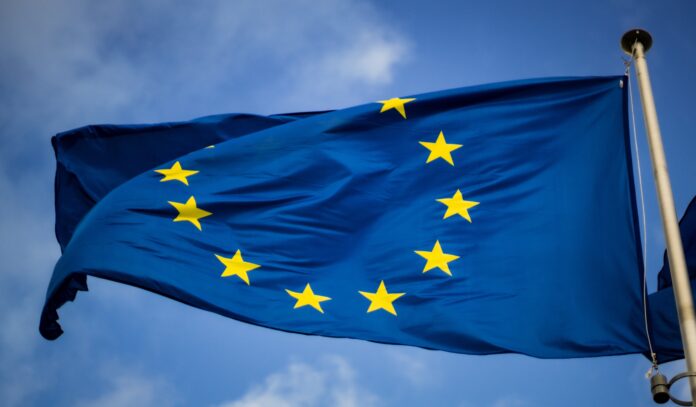Europe, often referred to as the “Old Continent,” is a diverse and culturally rich region that spans across the Eurasian landmass. With a long and complex history, Europe has played a crucial role in shaping the world we know today. From its ancient civilizations to its modern institutions, Europe continues to captivate and intrigue people from all corners of the globe. In this comprehensive overview, we will delve into ten important aspects of Europe, highlighting its geography, history, culture, and more.
1. Geographical Diversity: Europe is home to a remarkable range of landscapes and climates. From the icy tundra of Scandinavia to the Mediterranean coastlines of Spain and Italy, Europe offers breathtaking natural beauty. The continent encompasses the Ural Mountains in the east, the Alps in the south, and the fertile plains of Central Europe.
2. Historical Significance: Europe has witnessed pivotal events that shaped world history. It was the birthplace of ancient civilizations such as Greece and Rome, which laid the foundations for modern Western culture. Europe also experienced significant periods like the Renaissance, the Enlightenment, and the Industrial Revolution, which profoundly impacted science, art, philosophy, and technology.
3. Cultural Heritage: Europe boasts an immense cultural heritage that encompasses numerous languages, traditions, and artistic expressions. The continent is home to iconic landmarks like the Eiffel Tower in Paris, the Colosseum in Rome, and the Acropolis in Athens. European art, literature, and music have influenced the world for centuries, with renowned figures such as Leonardo da Vinci, William Shakespeare, and Ludwig van Beethoven leaving an indelible mark on human creativity.
4. European Union: The European Union (EU) is an economic and political union comprising 27 member states. The EU aims to promote peace, stability, and economic prosperity among its members. It operates a single market with a common currency, the Euro, and facilitates cooperation in areas such as trade, security, and environmental policies.
5. Schengen Area: The Schengen Area is a zone within Europe where passport controls have been abolished, allowing for the free movement of people. Currently, 26 European countries participate in the Schengen Agreement, enabling seamless travel across borders. This has greatly facilitated tourism, trade, and cultural exchange within the region.
6. European Colonial Legacy: European nations played a significant role in the Age of Exploration, establishing colonies and trading posts around the world. The colonial era left a lasting impact on both Europe and the regions it colonized. It led to the diffusion of languages, religions, and cultural practices, as well as economic exploitation and profound social changes.
7. Linguistic Diversity: Europe is a linguistic mosaic, with an estimated 225 languages spoken across the continent. While several languages have achieved international status, such as English, French, and German, many regional and minority languages thrive, representing the rich cultural tapestry of Europe.
8. Sports and Events: Europe is known for its passion for sports, with football (soccer) reigning supreme. The UEFA Champions League, featuring the top European club teams, is one of the most prestigious football competitions globally. Other popular sports include rugby, tennis, Formula One racing, and cycling. Europe also hosts numerous international events and tournaments, attracting athletes and spectators from all over the world.
9. Culinary Delights: European cuisine is renowned worldwide for its diversity and flavors. Each country within Europe offers its distinct culinary traditions and specialties. From Italian pasta and pizza to French pastries, Spanish tapas, Greek moussaka, and German sausages, Europe presents a gastronomic adventure that tantalizes the taste buds.
10. Tourism Hotspots: Europe is a top tourist destination, attracting millions of visitors each year. Cities like Paris, Rome, Barcelona, and London are among the most popular destinations, known for their architectural marvels, vibrant nightlife, and rich history. Additionally, picturesque regions like the French Riviera, the Scottish Highlands, the Norwegian fjords, and the Greek islands captivate visitors with their natural beauty.
Europe encapsulates a wealth of geographical, historical, cultural, and political elements that make it a truly captivating continent. Its geographical diversity, historical significance, cultural heritage, and political institutions like the European Union and the Schengen Area are just a glimpse into the complex and multifaceted nature of Europe. With its remarkable contributions to the world in various fields, Europe continues to be a dynamic and influential region that leaves a lasting impact on global affairs.
Moreover, Europe’s historical significance cannot be overstated. It has been the stage for pivotal events that have shaped the course of human history. From the rise and fall of empires to the devastation of World Wars, Europe has been at the center of major conflicts and transformations. The scars of these events are still visible in the form of war memorials, preserved battlefields, and museums that serve as reminders of the continent’s tumultuous past.
The cultural heritage of Europe is a treasure trove of artistic, intellectual, and philosophical achievements. It has been the birthplace of influential movements like the Renaissance, which sparked a renewed interest in the arts and sciences, and the Enlightenment, which championed reason, liberty, and human rights. European literature, from the works of Shakespeare and Dante to Tolstoy and Goethe, has shaped the literary canon. European art, with its masterpieces by Michelangelo, Rembrandt, Picasso, and countless others, continues to inspire and provoke.
At the heart of Europe’s modern integration and cooperation lies the European Union. Founded with the goal of promoting peace, stability, and prosperity, the EU has fostered economic integration, facilitated the movement of goods and people, and established common policies on issues ranging from agriculture to environmental protection. The Eurozone, comprised of 19 EU member states, shares a common currency, the Euro, further enhancing economic unity.
The Schengen Area, another vital aspect of European integration, has revolutionized travel within the continent. With open borders and the absence of passport controls, individuals can freely move between participating countries. This has facilitated tourism, encouraged cross-border trade and business, and reinforced the sense of a unified Europe.
Europe’s colonial legacy, although controversial, has left an indelible imprint on the continent and the wider world. The exploration and exploitation of distant lands by European powers led to the exchange of ideas, resources, and cultures. The impact of colonialism can be seen in the linguistic diversity of Europe, as well as the global diffusion of European languages, religions, and legal systems.
In the realm of sports and events, Europe’s passion and prowess are undeniable. Football, in particular, captures the hearts of millions across the continent. The UEFA Champions League, showcasing the best club teams in Europe, is a major sporting event that draws massive viewership and generates intense excitement. Europe also hosts prestigious tournaments in other sports, such as the Six Nations Rugby Championship, the Wimbledon tennis tournament, and the Tour de France.
European cuisine is a culinary delight that reflects the diversity of the continent. Each country has its own unique dishes and specialties, influenced by local ingredients, traditions, and historical influences. From Spanish paella to Hungarian goulash, from Swiss fondue to British fish and chips, the flavors of Europe are as diverse as its nations.
Europe’s popularity as a tourist destination is unrivaled. Its iconic cities, with their blend of history, culture, and modernity, draw visitors from all corners of the globe. From the romantic streets of Paris and the ancient ruins of Rome to the vibrant nightlife of Berlin and the majestic landscapes of Scotland, Europe offers a myriad of experiences for every traveler’s taste.
In summary, Europe encompasses a wealth of experiences, from its geographical diversity and historical significance to its cultural heritage and political institutions. The European Union and the Schengen Area have revolutionized the way countries interact and cooperate, fostering peace and unity. With its rich history, vibrant arts scene, delectable cuisine, and breathtaking landscapes, Europe continues to enchant and inspire visitors, ensuring its enduring place as a global powerhouse.


















